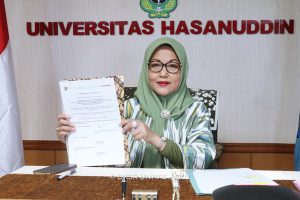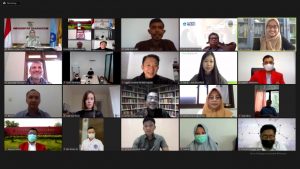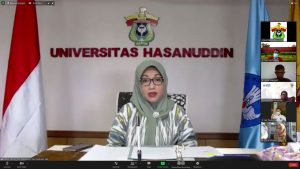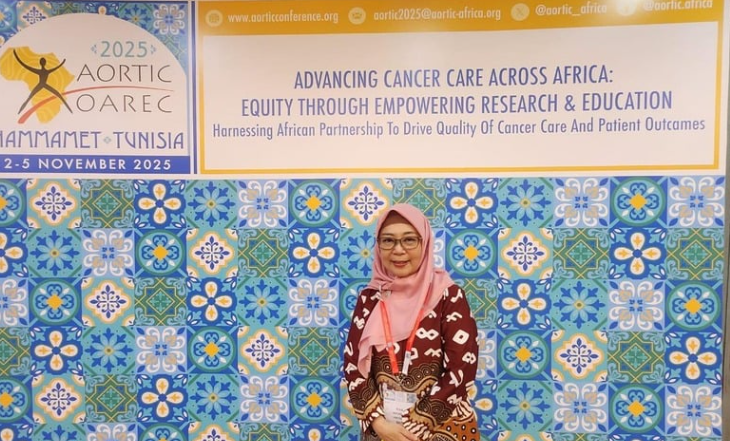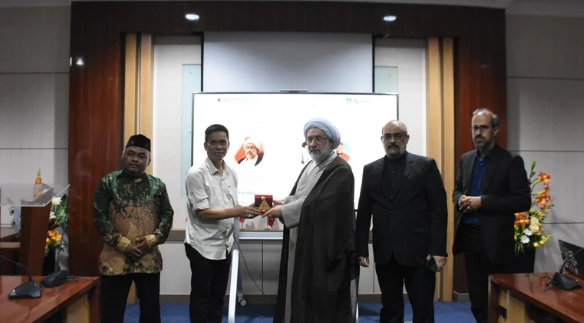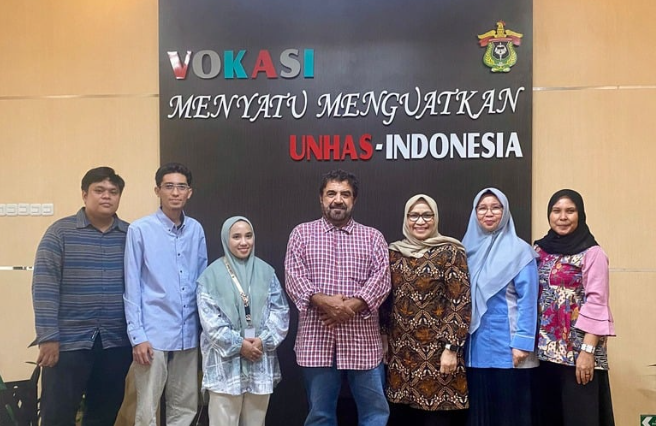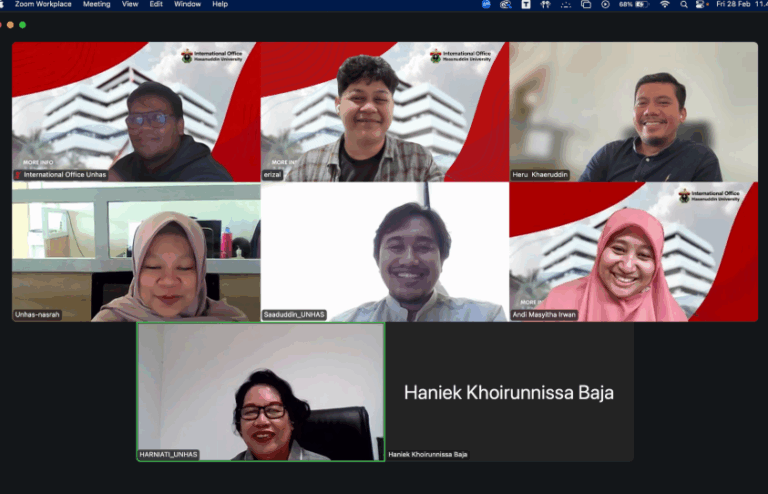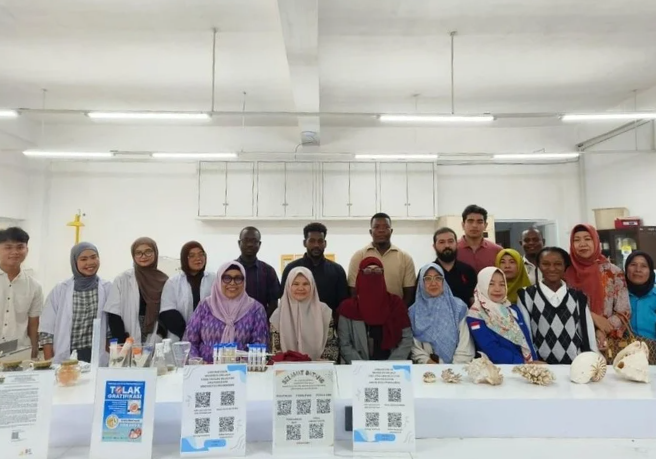Universitas Hasanuddin (Unhas) and three parties, PT. Hakiki Donarta, Java Biocolloid Europa SRL, Italia (Sustainable Biocolloid Srl Italia, Biopolife SRL) dan Barry Callebaut Chocolate Asia Pacific Pte Ltd. agreed on the collaborative development of Seaweed in Middle and Eastern Indonesia, especially Sulawesi Selatan Province. Unhas and the partners officially established the cooperation by signing a Memorandum of Understanding (MoU) with all parties involved.
The MoU signing took place online through Zoom Meeting Application at 16.00 WITA on Wednesday (14/07). University leaders of Unhas, including vice-rectors and deans, attended the event to be part of the important moment for Unhas.
To begin with, the Rector of Unhas, Prof. Dr. Dwia Aries Tina Pulubuhu, MA., thanked all Unhas leaders and parties that have chosen Unhas to be their partner. She also appreciated the collaboration on Seaweed for future purposes through several programs designated.
Prof. Dwia hopes that the proposed collaboration can be implemented as soon as possible so that the partnership’s result can benefit the community. There will be some collaborative programs in the partnership, including a ‘Seaweed for a Greener Future’ project. The project will employ research on the Asparagopsis type of Seaweed that is useful for animal feed and to reduces methane gas emissions.
“Thank you to the parties for the trust given to Unhas. We can do many things together in this collaboration. The results of what will be done can be a recommendation for better research in the future,” explained Prof. dual.
Giulio Paravano (Marketing Manager of Java Biocolloid Europe SRL, Italy), representing the partners, said in his speech that Indonesia is a country that has an excellent opportunity to develop a seaweed industry with global competitiveness in terms of type, quantity, and quality. With the potential for cultivation and high diversity, Indonesia has the opportunity to develop various kinds of seaweed products.
Seaweed can support food security and even contribute to world food. The need for Seaweed as an alternative protein source is very potential to be developed. Mass seaweed cultivation is also able to support the level of community welfare.
“The potential of Indonesian Seaweed is extraordinary with many supporting aspects. Suppose We can manage this advantage properly through the various products produced. In that case, I believe it will be very beneficial for people’s lives. Therefore, universities have a role in this,” explained Giulio.
The activity ran smoothly until 16.30 WITA.
Kumara Tungga Dewa, S.S.
Editor: Ishaq Rahman, AMIPR
